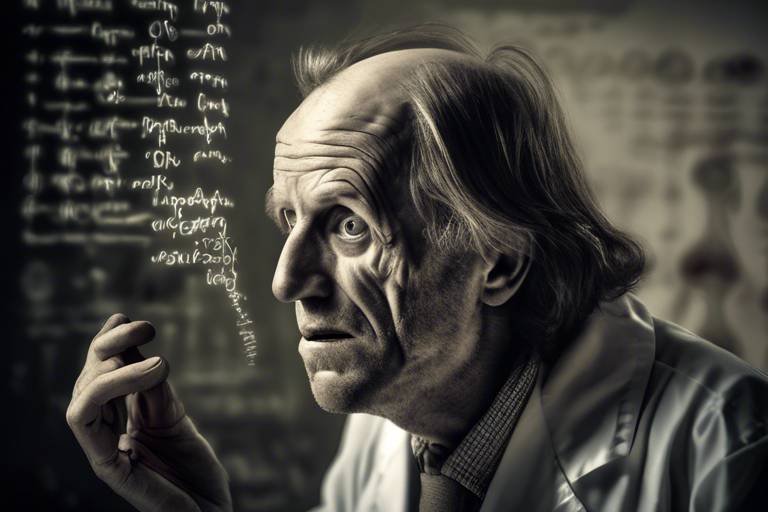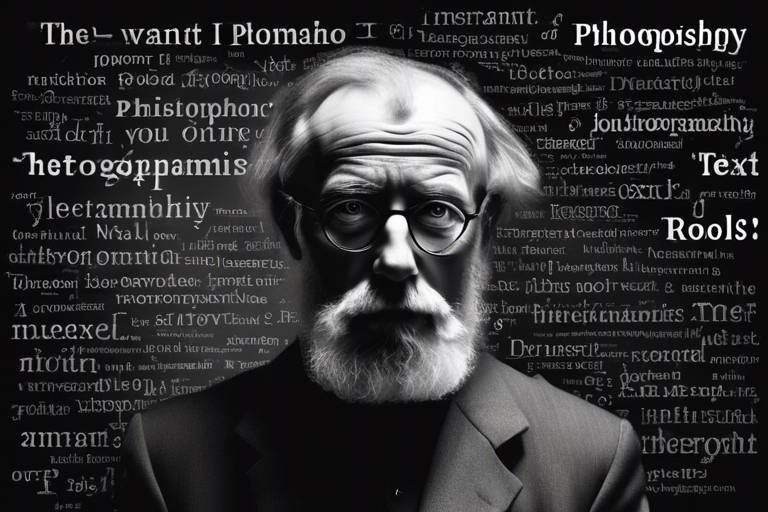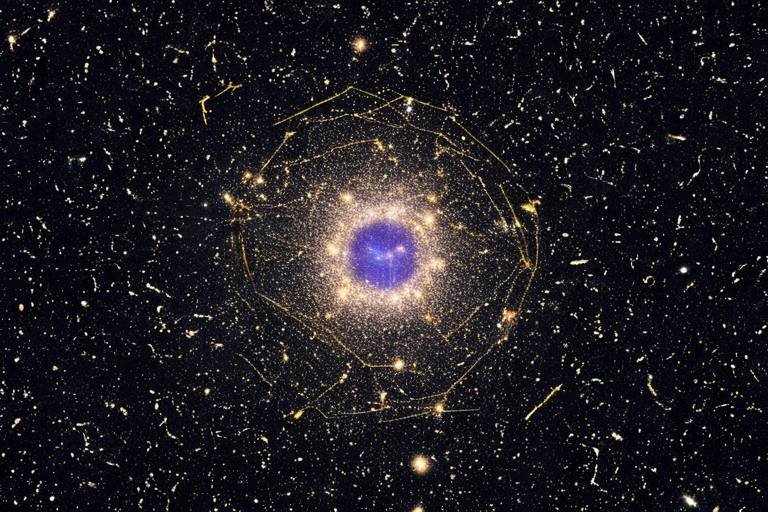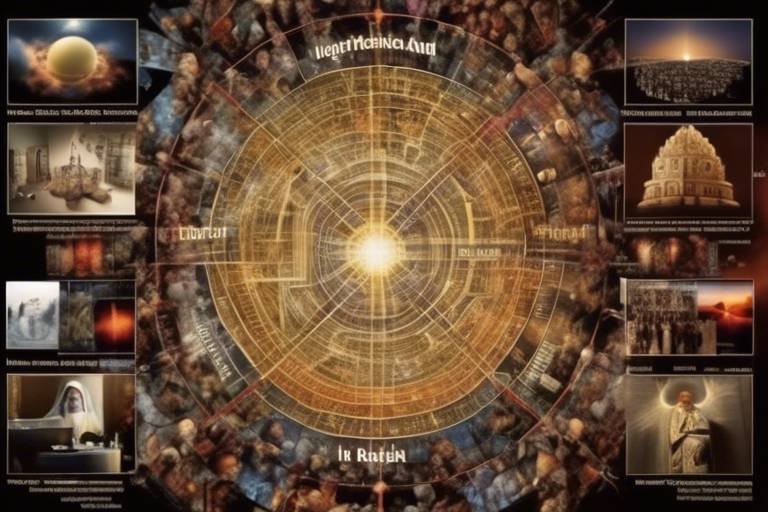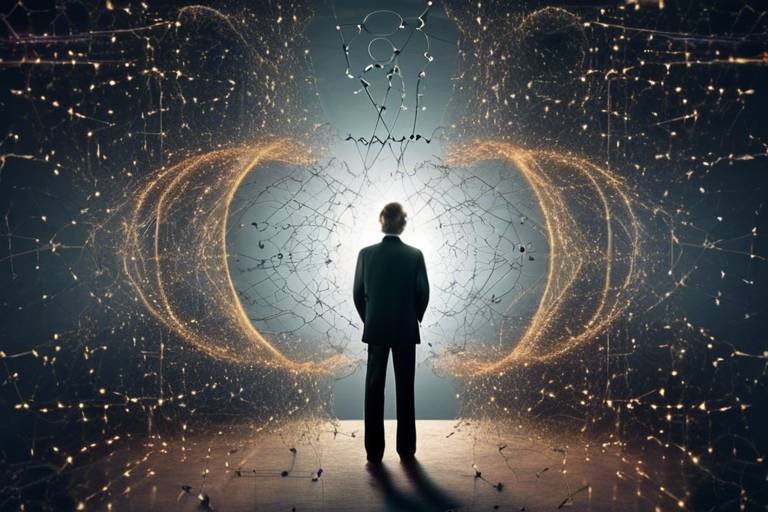Are We Living in a Computer Simulation? The Science and Philosophy Behind
Have you ever stopped to ponder the nature of your reality? The question of whether we are living in a computer simulation is not just a whimsical thought; it’s a profound inquiry that has captured the imagination of scientists, philosophers, and tech enthusiasts alike. Imagine waking up one day to discover that everything you know—from the very ground beneath your feet to the sky above—is merely a complex program running on an advanced computer somewhere in the universe. This tantalizing idea, known as the simulation hypothesis, invites us to explore the intersection of science, philosophy, and technology.
The simulation hypothesis suggests that our perceived reality might be an artificial construct, akin to the virtual worlds we create in video games. The concept gained traction in the early 21st century, particularly through the influential work of philosopher Nick Bostrom. He proposed that if advanced civilizations could create highly realistic simulations, it’s statistically probable that we might be living in one of them. This idea raises numerous questions about the nature of existence, consciousness, and the very fabric of reality itself.
As we delve deeper into this intriguing hypothesis, we find ourselves at the crossroads of philosophical thought and scientific inquiry. On one hand, philosophers have long debated the essence of reality, while on the other, scientists are uncovering mysteries of the universe that challenge our understanding of what is real. The implications of living in a simulated universe could reshape our perceptions of identity, morality, and even our place in the cosmos.
In the following sections, we will explore the origins of the simulation hypothesis, its philosophical foundations, and the scientific perspectives that lend credence to this extraordinary idea. We’ll also examine the technological advancements that blur the lines between reality and simulation, making this debate more relevant than ever. So, buckle up as we embark on this mind-bending journey into the possibility that our world might just be a sophisticated illusion!
The simulation hypothesis posits that our reality could be an artificial simulation. This section delves into its origins, key proponents, and the implications of living in a simulated universe.
Philosophers have long pondered the nature of reality. This section discusses major philosophical arguments that support or challenge the idea of a simulated existence, including Descartes' skepticism and Baudrillard's hyperreality.
René Descartes famously questioned the nature of reality, proposing that a deceiving demon could manipulate our perceptions. This subheading examines how his ideas relate to contemporary simulation theories.
The distinction between dreams and waking life raises questions about perception. This section explores how dreams can inform our understanding of a potential simulated existence.
The film The Matrix popularized the simulation hypothesis. This part analyzes its cultural significance and how it has influenced public perception of reality and technology.
Recent advancements in technology, such as virtual reality and artificial intelligence, have reignited discussions about simulation. This section explores how these technologies blur the lines between reality and simulation.
Scientists have approached the simulation hypothesis from various angles. This section reviews relevant theories from physics and cosmology that lend credence to the idea of a simulated universe.
Quantum mechanics challenges traditional notions of reality. This subheading discusses how quantum phenomena might suggest a simulated framework underlying our universe.
Cosmological theories, including the multiverse concept, offer insights into the nature of reality. This section examines how these models intersect with simulation ideas and their implications for our understanding of existence.
Q: What is the simulation hypothesis?
A: The simulation hypothesis suggests that our reality might be an artificial simulation created by an advanced civilization.
Q: Who are the key proponents of this idea?
A: Notable proponents include philosopher Nick Bostrom and physicist David Deutsch, among others.
Q: How does technology influence this debate?
A: Advancements in virtual reality and artificial intelligence blur the lines between real and simulated experiences, making the hypothesis more plausible.
Q: What are the philosophical implications of living in a simulation?
A: It raises questions about consciousness, identity, and the nature of existence itself.

The Simulation Hypothesis
The simulation hypothesis is a provocative idea that suggests our entire reality might be an intricate computer-generated simulation. Imagine, if you will, that everything you see, touch, and experience is merely an elaborate digital construct, much like a video game. This theory has gained traction not only in science fiction but also in serious philosophical and scientific discussions. The concept was popularized by philosopher Nick Bostrom in 2003, who argued that if we could create highly realistic simulations of reality, it’s plausible to think that we might already be living in one.
At its core, the simulation hypothesis raises a multitude of questions. Why would an advanced civilization create such a simulation? What would be the purpose? Some theorists suggest that it could serve as a way to study historical events, test social dynamics, or even explore the consequences of various decisions. Just like scientists run experiments in controlled environments, perhaps a simulated universe allows for a broader understanding of complex systems without the ethical implications of real-world experimentation.
One of the key proponents of this idea, Bostrom, presented a trilemma: either civilizations go extinct before reaching a technological maturity capable of creating such simulations, they choose not to run simulations, or we are almost certainly living in a simulation. This thought experiment forces us to reconsider our place in the universe and the nature of our existence. If we are indeed living in a simulation, what does that say about our free will? Are we mere characters in someone else's game?
Moreover, the implications of the simulation hypothesis extend beyond just philosophical musings. As technology advances, particularly in fields like artificial intelligence and virtual reality, the boundary between what is real and what is simulated becomes increasingly blurred. For instance, consider the evolution of video games. From simple 8-bit graphics to immersive virtual realities, the progression showcases our capacity to create convincing simulations. As we continue to push the envelope, one can’t help but wonder: are we on the brink of creating a simulation so sophisticated that it could be indistinguishable from reality?
In addition to philosophical and technological discussions, the simulation hypothesis also invites a cultural examination. Films like The Matrix have not only entertained but also sparked dialogues about the nature of reality and existence. The film's portrayal of a simulated world where humans are unknowingly trapped has resonated deeply, prompting audiences to question their own perceptions of reality. It’s a fascinating intersection of entertainment, philosophy, and technology that continues to evolve.
Ultimately, the simulation hypothesis challenges us to think critically about our existence. Are we merely players in a grand simulation, or do we have agency over our lives? As we delve deeper into this philosophical rabbit hole, we find ourselves grappling with profound questions that may never be fully answered. Yet, it is this very uncertainty that makes the exploration of the simulation hypothesis so captivating.
- What is the simulation hypothesis? The simulation hypothesis proposes that our reality could be an artificial simulation, similar to a highly advanced video game.
- Who proposed the simulation hypothesis? Philosopher Nick Bostrom is one of the key figures who popularized the idea in 2003.
- What are the implications of living in a simulation? If we are living in a simulation, it raises questions about free will, the nature of reality, and the purpose behind the simulation.
- How does technology relate to the simulation hypothesis? Advancements in artificial intelligence and virtual reality blur the lines between reality and simulation, making the hypothesis more plausible.
- What cultural impact has the simulation hypothesis had? Films like The Matrix have significantly influenced public perception and discussions around the nature of reality.
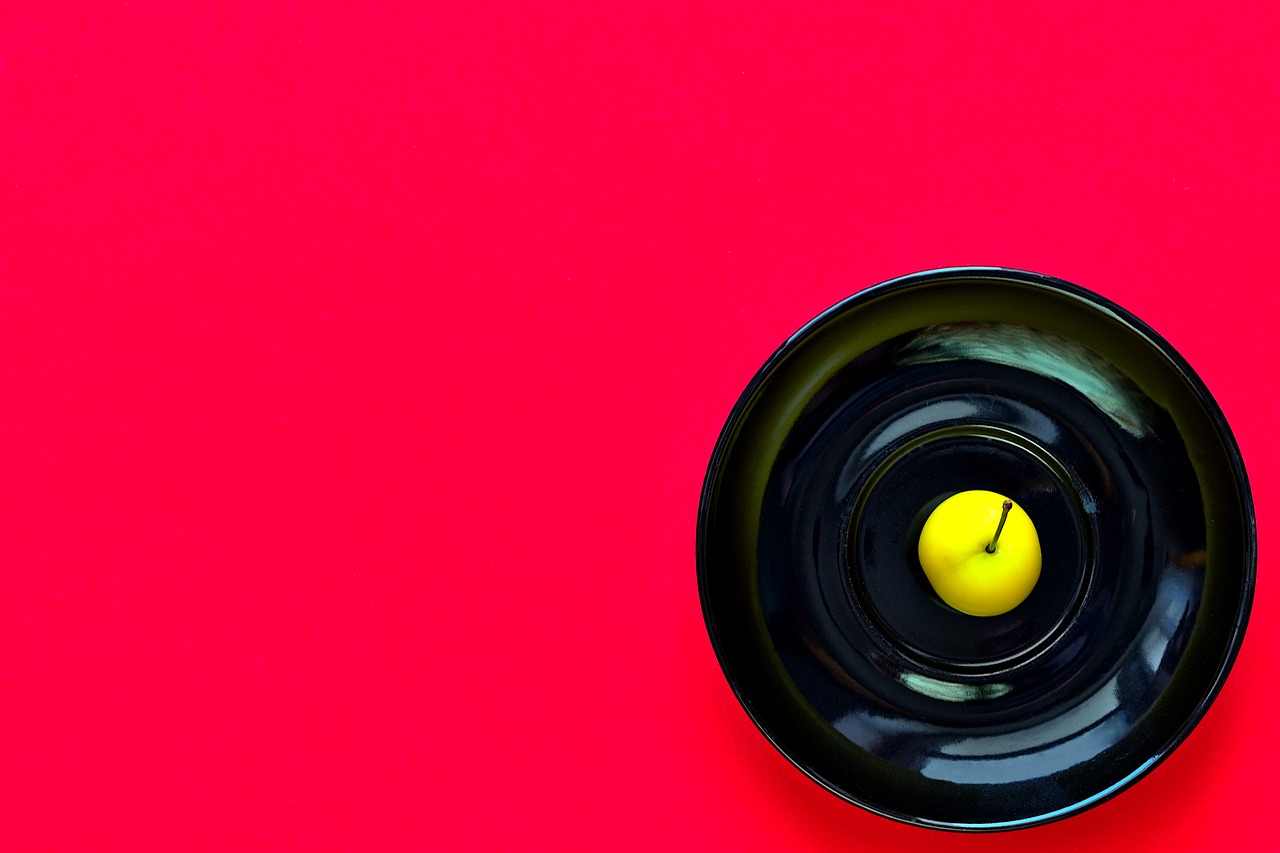
Philosophical Foundations
The question of whether we are living in a computer simulation isn't just a modern technological dilemma; it is deeply rooted in philosophical inquiry. Philosophers have long grappled with the essence of reality, consciousness, and perception. The simulation hypothesis challenges us to reconsider what we know about existence and whether our experiences are genuine or merely programmed illusions. This exploration is not merely academic; it has profound implications for how we understand ourselves and our place in the universe.
One of the most significant philosophical arguments related to the simulation hypothesis comes from the work of René Descartes. He famously questioned the reliability of our senses, suggesting that a powerful deceiver, or a "malicious demon," could manipulate our perceptions. This notion opens the door to the idea that our entire reality could be an elaborate trick. If we accept Descartes' skepticism, it raises the question: how can we be certain that our experiences are real and not part of an artificial construct? His arguments resonate with contemporary simulation theories, making us ponder if we are just characters in an elaborate video game.
Descartes' skepticism is a cornerstone of modern philosophy. His famous declaration, "Cogito, ergo sum" (I think, therefore I am), emphasizes that the very act of doubt implies a thinking entity. But what if that thinking entity is merely a program? This leads us to a fascinating intersection between Cartesian philosophy and contemporary simulation theory. Just as Descartes questioned the nature of our perceptions, modern thinkers challenge us to consider whether our perceived reality is a sophisticated simulation. In this way, Descartes' ideas serve as a precursor to the simulation hypothesis, illustrating how ancient philosophical inquiries still resonate in today's technological landscape.
Another intriguing aspect of this philosophical debate is the distinction between dreams and reality. Have you ever woken up from a vivid dream, convinced it was real? This phenomenon highlights the malleability of our perceptions. Just as dreams can feel incredibly lifelike, so too can a simulated reality. The lines blur, making us question the authenticity of our waking experiences. Philosophers like George Berkeley argued that reality is fundamentally tied to perception, suggesting that if our perceptions can be manipulated—whether by dreams or simulations—then the nature of reality itself becomes suspect. This idea leads us to wonder: if our experiences can be engineered, what does that say about our understanding of existence?
The cultural significance of the simulation hypothesis has been profoundly shaped by popular media, particularly the film The Matrix. This cinematic masterpiece not only entertained audiences but also sparked a global conversation about the nature of reality and technology. It presented a world where humans unknowingly live in a simulated reality, controlled by machines. The film's impact is evident; it has permeated discussions in philosophy, technology, and even spirituality. It challenges viewers to question their own realities and consider the implications of living in a world where perception can be manipulated. The Matrix serves as a modern allegory for the philosophical dilemmas posed by the simulation hypothesis, illustrating how deeply our cultural narratives can influence our understanding of existence.
In summary, the philosophical foundations of the simulation hypothesis are rich and complex. From Descartes' skepticism to the cultural commentary provided by films like The Matrix, these ideas compel us to explore the nature of reality in ways we may not have previously considered. As we delve deeper into this philosophical landscape, we find ourselves confronted with profound questions about existence, perception, and the very fabric of reality itself.
- What is the simulation hypothesis? The simulation hypothesis suggests that our reality could be an artificial simulation, akin to a computer program.
- Who proposed the simulation hypothesis? The concept has been popularized by philosophers like Nick Bostrom, but its roots can be traced back to earlier philosophical inquiries.
- How does Descartes' skepticism relate to the simulation hypothesis? Descartes questioned the reliability of our senses, proposing that a deceiver could manipulate our perceptions, which parallels the idea that our reality might be a simulation.
- What role does technology play in this debate? Advancements in virtual reality and artificial intelligence have reignited discussions about the nature of reality and the possibility of living in a simulation.

Descartes and Skepticism
René Descartes, the 17th-century French philosopher, is often regarded as the father of modern philosophy. His famous dictum, "Cogito, ergo sum" (I think, therefore I am), encapsulates his quest for certainty in an uncertain world. Descartes embarked on a journey of skepticism, questioning everything he thought he knew about reality. He proposed a radical idea: what if an all-powerful deceiver, or a "malicious demon," was manipulating his perceptions? This concept challenges the very foundation of our understanding of existence and reality.
Descartes' skepticism leads us to consider the nature of our experiences. If we cannot trust our senses, how can we be sure of anything? This line of thought resonates deeply with the contemporary simulation hypothesis, which suggests that our experiences might be nothing more than an elaborate illusion, akin to a computer-generated reality. Just like a video game, where players are immersed in a world that feels real, we might be living in a sophisticated simulation, designed to mimic reality.
To better understand Descartes' skepticism and its implications for the simulation hypothesis, let's explore some key points:
- Perception vs. Reality: Descartes argued that our senses can deceive us. For example, a stick partially submerged in water appears bent, even though it is straight. This illustrates how easily our perceptions can be manipulated.
- The Dream Argument: Descartes posited that dreams can be so vivid that they blur the line between reality and illusion. If we can be deceived in our dreams, how do we know we aren't dreaming right now?
- The Evil Demon Hypothesis: This thought experiment raises profound questions about the nature of existence and knowledge. If a powerful being is controlling our perceptions, then everything we believe could be a fabrication.
These ideas are not just philosophical musings; they have real implications for our understanding of the universe. If we consider the possibility that we are living in a simulation, we can draw parallels between Descartes' skepticism and modern theories in physics and technology. For instance, advancements in virtual reality (VR) and artificial intelligence (AI) are creating environments that feel increasingly real. As we continue to develop these technologies, the line between what is real and what is simulated becomes increasingly blurred.
In essence, Descartes' skepticism serves as a powerful framework for exploring the simulation hypothesis. It challenges us to question our assumptions about reality and forces us to consider the possibility that our perceptions might be manipulated in ways we cannot fully comprehend. Just as Descartes sought certainty in a world filled with doubt, we too must navigate the complexities of existence, questioning whether our experiences are authentic or merely the result of an intricate simulation.
- What is the simulation hypothesis? The simulation hypothesis suggests that our reality might be an artificial simulation, similar to a highly advanced computer program.
- How does Descartes' skepticism relate to the simulation hypothesis? Descartes' skepticism questions the reliability of our perceptions, which parallels the idea that our reality might be manipulated in a simulated environment.
- Can we ever know if we are living in a simulation? While we may never be able to definitively prove or disprove the simulation hypothesis, exploring it encourages critical thinking about the nature of reality.
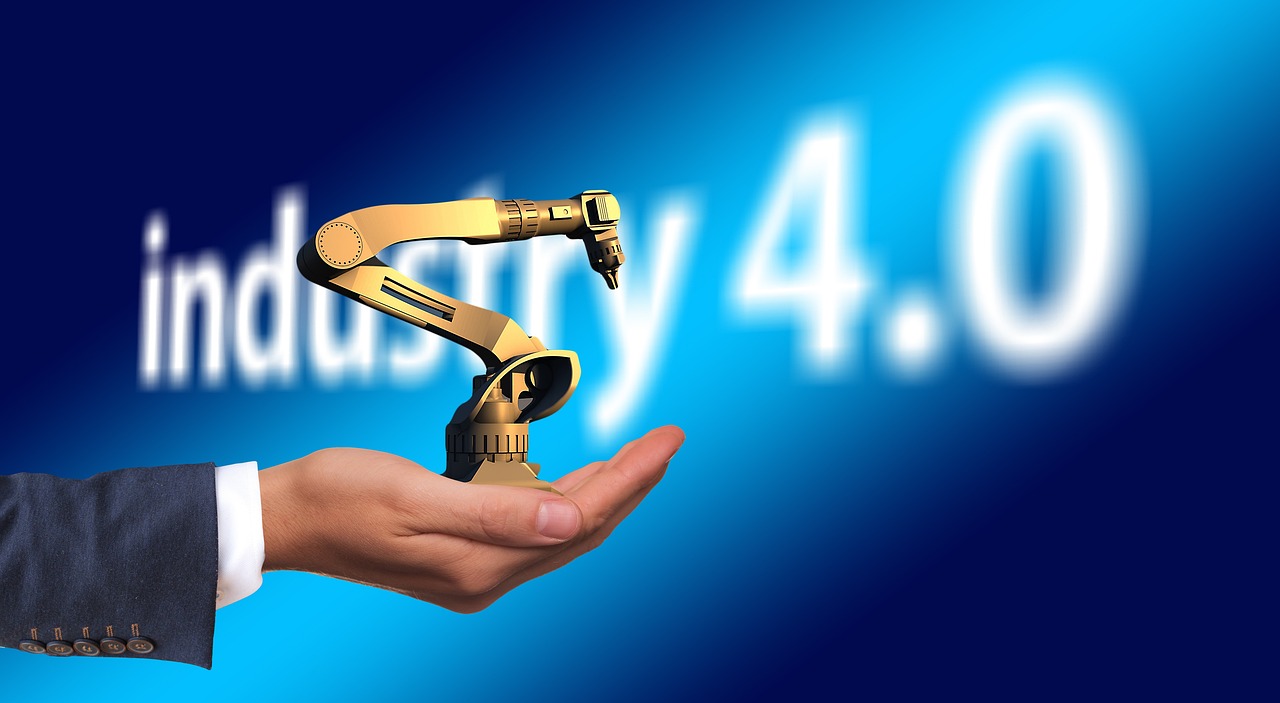
Dreams vs. Reality
Have you ever woken up from a dream and thought, "Was that real?" Dreams can feel so vivid and immersive that they often blur the lines between what we perceive as reality and the fantastical worlds our minds create while we sleep. This phenomenon raises intriguing questions about the nature of our existence. Are we simply experiencing a complex dream, or is there a solid reality underpinning our daily lives?
The concept of dreams as a potential gateway to understanding our reality can be likened to a video game. Imagine playing a game where the graphics are so realistic that you forget you’re not actually in that world. In this sense, dreams might serve as a form of simulation, allowing us to explore different scenarios, emotions, and even fears without the constraints of physical reality. Just as in a game, our subconscious mind constructs environments and narratives that can feel utterly convincing.
To delve deeper, let’s consider a few key aspects that highlight the relationship between dreams and reality:
- Perception: Our perceptions can be manipulated, both in dreams and reality. Just as a dream can feel real while we’re in it, our waking experiences can also be influenced by external factors, leading us to question what is genuinely real.
- Memory: Dreams often draw on our memories, intertwining them in ways that can feel disjointed yet familiar. This interplay suggests that both dreams and reality are constructed from our experiences, blurring the lines further.
- Lucid Dreaming: Some individuals can become aware that they are dreaming and even control their actions within the dream. This ability raises questions about consciousness and whether we can achieve a similar awareness in our waking lives.
Moreover, the philosophical implications of dreams challenge us to rethink our understanding of existence. If we can create entire worlds in our minds, what does that say about the reality we inhabit? Are we merely players in a larger game, with our lives being scripted by some unseen coder? This idea echoes the simulation hypothesis, suggesting that our reality could be just another layer of a more complex structure.
In conclusion, the relationship between dreams and reality serves as a profound exploration of consciousness. As we navigate through life, the lines between what is real and what is imagined may not be as clear-cut as we would like to believe. The next time you wake from a dream, consider the possibility that both realms might be more interconnected than we realize.
- What is the simulation hypothesis? The simulation hypothesis suggests that our reality could be an artificial simulation created by a more advanced civilization.
- How do dreams relate to the simulation hypothesis? Dreams can feel incredibly real, raising questions about the nature of our reality and whether we might be living in a simulation.
- Can lucid dreaming help us understand reality? Lucid dreaming allows individuals to become aware of their dreams, which may provide insights into consciousness and the nature of existence.
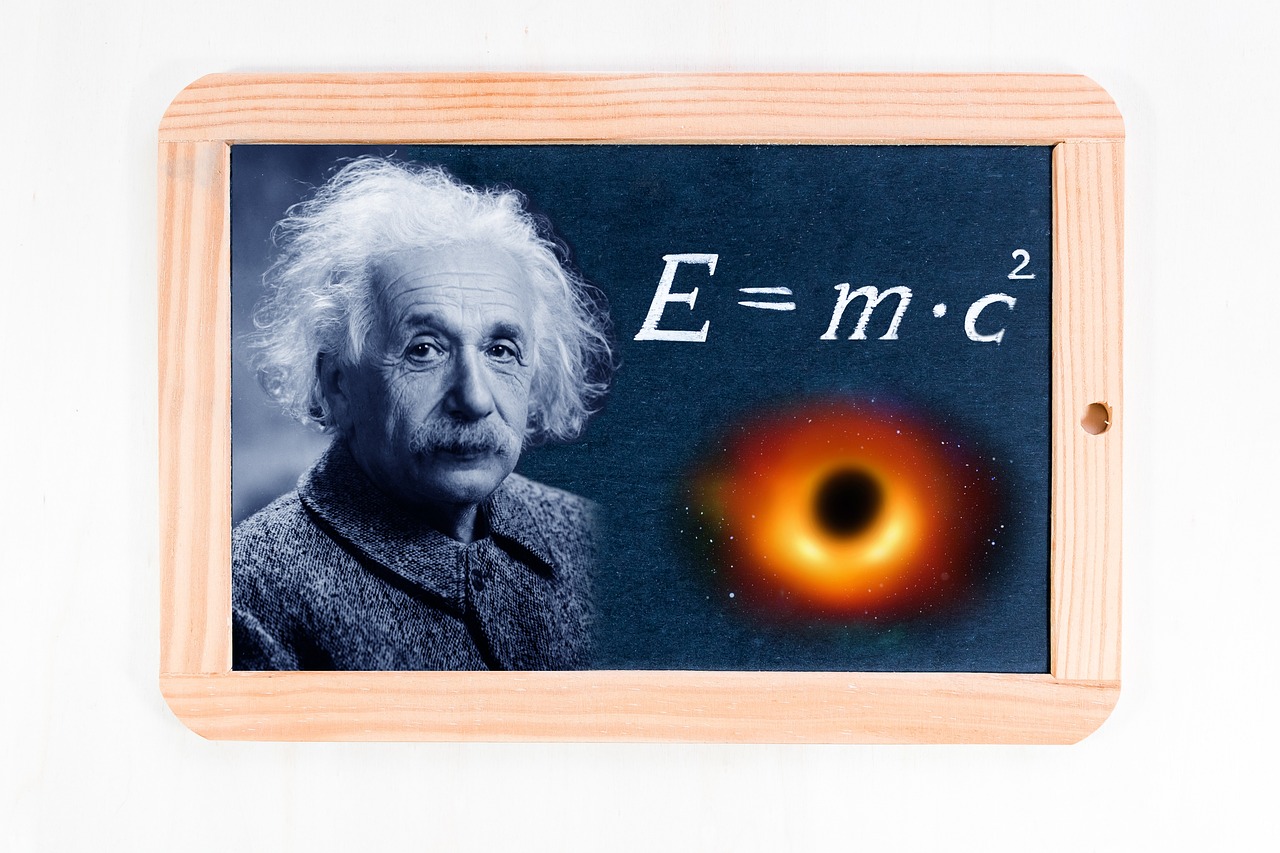
The Matrix and Cultural Impact
The film The Matrix, released in 1999, didn't just entertain; it sparked a profound cultural conversation that continues to resonate today. It introduced audiences to a world where reality is not what it seems, where humans unknowingly live in a simulated reality created by machines. This concept, while fictional, has real-world implications that challenge our understanding of existence. The film's iconic scenes and philosophical underpinnings have permeated popular culture, leading to a collective questioning of the nature of reality itself.
One of the most striking aspects of The Matrix is its ability to blend high-concept philosophy with action-packed storytelling. The film draws on various philosophical ideas, particularly those related to perception and reality. It raises questions such as: If we were living in a simulation, would we even know it? This question echoes the musings of philosophers like René Descartes, who pondered the possibility of a deceiving demon manipulating our perceptions. The Matrix's portrayal of a simulated reality serves as a modern allegory for these age-old philosophical dilemmas, making them accessible to a wider audience.
Moreover, the film has significantly influenced the tech industry and the development of virtual reality (VR). As technology advances, the lines between what is real and what is simulated become increasingly blurred. The Matrix has inspired not only filmmakers but also technologists and futurists who envision a world where virtual experiences might one day rival or even surpass our physical reality. The cultural impact of the film can be summarized in the following ways:
- Philosophical Discourse: It has revived interest in philosophical discussions about reality, perception, and existence.
- Technological Inspiration: The film has inspired advancements in VR and AI, pushing the boundaries of what we consider real.
- Pop Culture References: The Matrix has become a cultural touchstone, referenced in countless other films, TV shows, and media.
As we navigate our increasingly digital lives, the themes presented in The Matrix resonate more than ever. The film invites viewers to question their own realities and consider the implications of living in a world where technology can create hyper-realistic simulations. In a way, it acts as a cautionary tale about the potential consequences of our reliance on technology, urging us to remain vigilant about the nature of our experiences.
In conclusion, The Matrix is not just a film; it's a cultural phenomenon that has left an indelible mark on our collective consciousness. It challenges us to think critically about the nature of reality, the role of technology in our lives, and the philosophical questions that have persisted through the ages. As we continue to explore these themes, we must ask ourselves: Are we truly awake, or are we merely players in a grand simulation?
- What is the main premise of The Matrix? The Matrix presents a dystopian future where humans live in a simulated reality created by machines to distract them while their bodies are used as an energy source.
- How does The Matrix relate to philosophical ideas? The film explores themes of reality, perception, and existence, drawing on philosophical concepts like skepticism and hyperreality.
- Has The Matrix influenced technology? Yes, the film has inspired advancements in virtual reality and artificial intelligence, affecting how we think about and interact with technology.
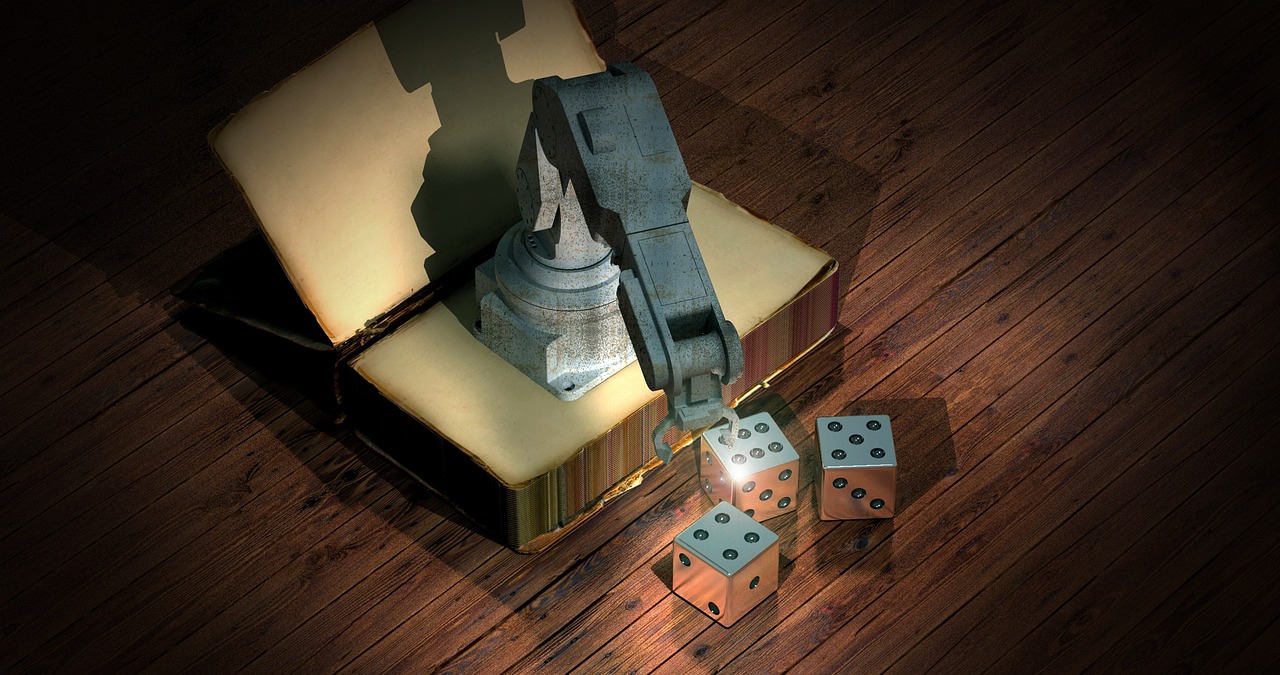
The Matrix
This article explores the intriguing question of whether our reality is a computer simulation, examining scientific theories, philosophical implications, and the technological advancements that fuel this fascinating debate.
The simulation hypothesis posits that our reality could be an artificial simulation. This section delves into its origins, key proponents, and the implications of living in a simulated universe.
Philosophers have long pondered the nature of reality. This section discusses major philosophical arguments that support or challenge the idea of a simulated existence, including Descartes' skepticism and Baudrillard's hyperreality.
René Descartes famously questioned the nature of reality, proposing that a deceiving demon could manipulate our perceptions. This subheading examines how his ideas relate to contemporary simulation theories.
The distinction between dreams and waking life raises questions about perception. This section explores how dreams can inform our understanding of a potential simulated existence.
The film has had a profound impact on how we perceive reality and the concept of simulation. Released in 1999, it introduced audiences to a dystopian world where humans unknowingly live in a simulated reality created by intelligent machines. The film's central premise—questioning the very fabric of our existence—resonates deeply with the simulation hypothesis. It raises critical questions: What if our experiences are nothing more than a sophisticated illusion? Are we merely characters in a grand narrative controlled by unseen forces?
not only entertained but also provoked thought. It presented a world where the choice between reality and simulation is symbolized by the iconic red and blue pills. Choosing the red pill represents the desire to uncover the truth, no matter how unsettling it may be. This metaphor has become a cultural touchstone, urging us to question our surroundings and the nature of our existence.
Moreover, the film's influence extends beyond cinema; it has permeated popular culture, inspiring discussions about technology, consciousness, and free will. It prompts us to consider the implications of our increasingly digital lives, where virtual reality and artificial intelligence blur the lines between what is real and what is not. As technology advances, the fears and fascinations depicted in become more relevant, making us ponder whether we are indeed on the brink of a simulated future.
As we navigate through our daily lives, we encounter technology that mimics reality in astonishing ways. From virtual reality games that immerse us in alternate worlds to AI that can simulate human conversation, we are constantly reminded of the thin veil between the real and the artificial. This cultural phenomenon raises a crucial question: Are we, like the characters in , living in a world that is meticulously crafted to keep us oblivious to the truth?
In summary, serves as a powerful allegory for the simulation hypothesis, challenging viewers to reflect on the nature of their own realities. It invites us to consider the possibility that what we perceive may be merely a sophisticated illusion, urging us to seek deeper truths in our lives.
Recent advancements in technology, such as virtual reality and artificial intelligence, have reignited discussions about simulation. This section explores how these technologies blur the lines between reality and simulation.
Scientists have approached the simulation hypothesis from various angles. This section reviews relevant theories from physics and cosmology that lend credence to the idea of a simulated universe.
Quantum mechanics challenges traditional notions of reality. This subheading discusses how quantum phenomena might suggest a simulated framework underlying our universe.
Cosmological theories, including the multiverse concept, offer insights into the nature of reality. This section examines how these models intersect with simulation ideas and their implications for our understanding of existence.
- What is the simulation hypothesis? The simulation hypothesis suggests that our reality may be an artificial simulation, much like a computer program.
- Who proposed the simulation hypothesis? The idea has been popularized by thinkers like Nick Bostrom, who argues that future civilizations might create simulations of their ancestors.
- How does The Matrix relate to the simulation hypothesis? The Matrix presents a narrative where humans live in a simulated reality, prompting viewers to question the nature of their own existence.
- Can technology create a simulation of reality? With advancements in virtual reality and AI, the lines between real and simulated experiences are increasingly blurred.

popularized the simulation hypothesis. This part analyzes its cultural significance and how it has influenced public perception of reality and technology.
The Matrix, released in 1999, is more than just a groundbreaking sci-fi film; it serves as a cultural touchstone that has profoundly influenced our understanding of reality. The film's premise—that humanity is unknowingly trapped in a simulated reality created by sentient machines—has sparked intense discussions about the nature of existence. It poses a provocative question: what if our world is not as it seems? This cinematic masterpiece has popularized the simulation hypothesis in ways that resonate with audiences even today.
One of the film's most compelling aspects is its ability to blend action, philosophy, and technology seamlessly. Through the lens of its characters, particularly Neo, viewers are invited to question their own perceptions of reality. The iconic choice between the red pill and the blue pill becomes a powerful metaphor for awakening to the truth versus remaining in comfortable ignorance. This moment encapsulates the essence of the simulation hypothesis: the fear and thrill of discovering that our reality might be an illusion.
The Matrix has not only influenced popular culture but has also permeated academic discussions. Scholars and philosophers have drawn parallels between the film's themes and ancient philosophical questions about reality. For example, Plato's Allegory of the Cave presents a similar idea where prisoners, chained in a cave, perceive shadows as reality, unaware of the outside world. Such comparisons highlight how The Matrix serves as a modern retelling of age-old philosophical dilemmas.
Moreover, the film's impact extends to technology and society. In an age where virtual reality (VR) and augmented reality (AR) are becoming increasingly prevalent, The Matrix has provided a framework for understanding these technologies. As we immerse ourselves in digital worlds, one can't help but wonder: are we stepping closer to the reality depicted in the film? The lines between our physical existence and digital experiences are blurring, prompting a cultural reckoning with the implications of living in a world where technology can manipulate our perceptions.
In addition, The Matrix has inspired a plethora of discussions around artificial intelligence (AI) and its potential consequences. As AI continues to evolve, the fear of creating a reality similar to that in the film becomes more tangible. Are we unwittingly designing our own "agents" that could one day challenge our understanding of freedom and reality? These questions are not merely hypothetical; they are relevant to ongoing debates in technology and ethics.
To summarize, The Matrix has played a pivotal role in popularizing the simulation hypothesis and shaping public perception of reality and technology. Its cultural significance lies in its ability to provoke thought and discussion about the nature of existence, the implications of technology, and the philosophical questions that have persisted throughout human history. As we navigate an increasingly digital world, the themes explored in the film remain as pertinent as ever, inviting us to reflect on our own reality and the choices we make within it.
- What is the simulation hypothesis? The simulation hypothesis suggests that our reality might be an artificial simulation, similar to a computer program.
- How did The Matrix influence perceptions of reality? The Matrix popularized the idea of simulated realities, prompting audiences to question their own existence and the role of technology in shaping perceptions.
- What philosophical ideas are explored in The Matrix? The film draws on various philosophical concepts, including Descartes' skepticism and Plato's Allegory of the Cave, challenging viewers to consider the nature of reality.
- How does technology relate to the simulation hypothesis? Advancements in virtual reality and artificial intelligence raise questions about the boundaries between real and simulated experiences, echoing themes from The Matrix.
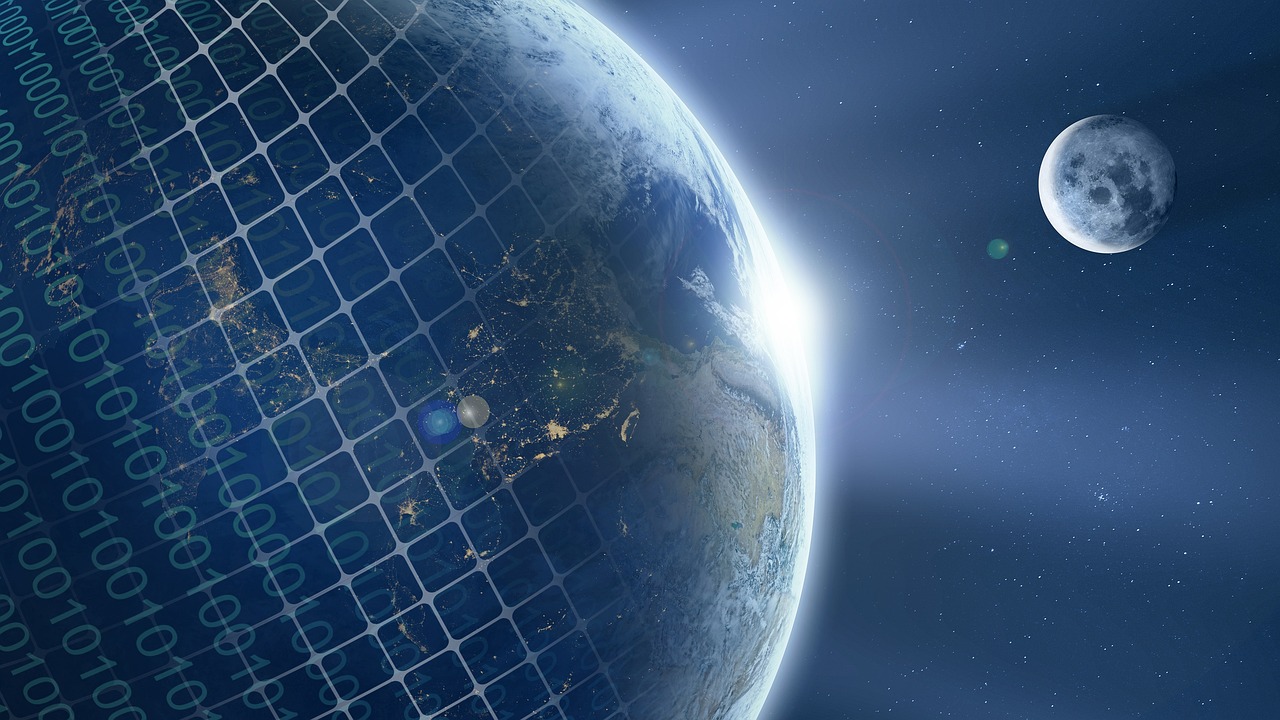
Technological Advancements
The rapid pace of in recent years has sparked a renewed interest in the simulation hypothesis. As we delve deeper into the realms of virtual reality (VR), artificial intelligence (AI), and other emerging technologies, the lines between what we perceive as real and what could be an artificial construct are becoming increasingly blurred. Imagine stepping into a world where you can interact with lifelike avatars or explore digital landscapes that feel as tangible as the ground beneath your feet. This is not just science fiction anymore; it’s a reality that many are beginning to embrace.
In particular, virtual reality has come a long way since its inception. With devices like the Oculus Rift and HTC Vive, users can immerse themselves in entirely different worlds, experiencing sensations that challenge their understanding of reality. These advancements raise a compelling question: if we can create such realistic simulations, what’s to say that our entire universe isn’t just one grand simulation? When we consider the power of AI, the question becomes even more intriguing. AI systems are now capable of learning and evolving, mimicking human behavior in ways that were once thought impossible. This capability leads to the idea that if we can create intelligent beings in a simulated environment, there’s a chance that we ourselves might be existing within a more advanced simulation.
Moreover, the concept of augmented reality (AR) adds another layer to this discussion. With AR, digital information is overlaid onto the real world, enhancing our perception of reality rather than replacing it. Think about how apps like Pokémon Go have transformed the way we interact with our surroundings. It’s as if we’re beginning to see the fabric of our reality being stitched with digital threads. As these technologies continue to evolve, we may find ourselves questioning the very nature of our existence.
To illustrate the impact of these technological advancements, consider the following table that outlines key technologies and their implications for our understanding of reality:
| Technology | Description | Implications for Reality |
|---|---|---|
| Virtual Reality (VR) | Immersive digital environments that replicate real-world experiences. | Challenges our perception of what is real vs. simulated. |
| Artificial Intelligence (AI) | Machines that can learn and make decisions independently. | Raises questions about consciousness and existence. |
| Augmented Reality (AR) | Overlay of digital information onto the real world. | Blurs the lines between physical and digital realms. |
As we explore these technologies, it’s essential to consider their ethical implications. Are we prepared for a future where our reality could be manipulated by advanced algorithms? What happens when the distinction between reality and simulation becomes indistinguishable? These questions not only challenge our understanding of existence but also compel us to think critically about the direction in which our technological advancements are leading us.
In conclusion, the advancements in technology are not merely tools for entertainment or convenience; they are reshaping our understanding of reality itself. As we stand on the precipice of a future that may resemble a simulation more than we ever imagined, it’s crucial to keep questioning and exploring the implications of our creations. Are we the architects of our own reality, or are we simply players in a game designed by a more advanced intelligence?
- What is the simulation hypothesis? The simulation hypothesis suggests that our reality might be an artificial simulation, similar to a computer program.
- Who proposed the simulation hypothesis? The idea has been popularized by various philosophers and scientists, notably Nick Bostrom in his 2003 paper.
- How do technological advancements relate to the simulation hypothesis? Technologies like VR, AI, and AR challenge our perceptions of reality and suggest that creating a simulation could be possible.
- What are the ethical implications of living in a simulated reality? Ethical concerns include the manipulation of reality, the nature of consciousness, and the potential for control by those who create the simulation.

Scientific Perspectives
The question of whether we are living in a computer simulation isn't just a philosophical musing; it has captured the attention of scientists as well. With the advent of advanced technologies and groundbreaking theories in physics, the simulation hypothesis has found a foothold in scientific discussions. Imagine standing at the edge of a vast ocean of knowledge, where every wave of discovery brings us closer to understanding the true nature of our existence. Scientists are now diving deep into this ocean, exploring various theories that might suggest our reality could be a sophisticated simulation.
One of the most compelling areas of study is quantum mechanics. This branch of physics challenges our traditional understanding of reality. At the quantum level, particles can exist in multiple states at once and only 'decide' on a specific state when observed. This peculiar behavior raises intriguing questions: Could this suggest that our universe operates on a set of programmed rules, akin to a computer simulation? The implications are profound, as they suggest that what we perceive as reality might be a mere projection, much like a hologram. To illustrate this concept, consider the following table that outlines key differences between classical and quantum mechanics:
| Aspect | Classical Mechanics | Quantum Mechanics |
|---|---|---|
| Particle Behavior | Definite states | Superposition of states |
| Observation Effect | No effect | Alters state |
| Determinism | Predictable | Probabilistic |
Furthermore, cosmological models offer additional insights into this discussion. The multiverse theory, which posits the existence of multiple, perhaps infinite, universes, suggests that our reality could be just one of many simulations running concurrently. If this is the case, then the idea of a simulated universe becomes not just a possibility but a plausible explanation for the complexity and structure we observe in our own universe. Imagine each universe as a different game being played on a console, with unique rules and environments. Each 'game' could be a simulation, crafted with its own set of parameters and outcomes.
As we delve deeper into these scientific perspectives, we must also consider the implications of artificial intelligence (AI). With the rapid advancements in AI, we are beginning to create systems that can simulate human-like behaviors and decision-making processes. This raises the question: if we can create such convincing simulations, what is stopping a more advanced civilization from creating a simulation of their own? The line between creator and creation blurs, leading to a fascinating yet unsettling thought—what if we are merely characters in someone else's elaborate simulation?
In conclusion, the scientific perspectives surrounding the simulation hypothesis are as varied as they are intriguing. From quantum mechanics to cosmological models, each theory adds a layer to our understanding of reality. As we continue to explore these ideas, we find ourselves at a crossroads of science and philosophy, where the boundaries of what we know are constantly being challenged. Are we simply players in a cosmic game, or do we have agency in our own reality? Only time—and perhaps further advancements in science—will tell.
- What is the simulation hypothesis? The simulation hypothesis suggests that our reality might be an artificial simulation, similar to a highly advanced computer program.
- Who are the key proponents of this theory? Notable figures include philosopher Nick Bostrom and tech moguls like Elon Musk, who have publicly entertained the idea.
- How does quantum mechanics relate to the simulation hypothesis? Quantum mechanics introduces concepts like superposition and observer effect, which challenge our understanding of reality and suggest it may be simulated.
- What are the implications of living in a simulation? If we are in a simulation, it raises questions about free will, existence, and the nature of consciousness.

Quantum Mechanics
Quantum mechanics is often regarded as one of the most perplexing realms of modern physics. It challenges our intuitive understanding of reality, suggesting that at the subatomic level, particles do not behave in ways we can easily comprehend. Imagine a world where a particle can exist in multiple states at once, only to 'choose' a state when observed. This peculiar behavior raises profound questions about the nature of existence and whether our perceived reality is indeed a simulation. Could it be that the very fabric of our universe is akin to a complex computer program, where the code is written in the language of quantum mechanics?
One of the most intriguing aspects of quantum mechanics is the concept of superposition. This principle posits that particles can exist in multiple states simultaneously until they are measured. For instance, consider Schrödinger's cat—a thought experiment where a cat in a box is both alive and dead until someone opens the box to observe it. This idea not only highlights the bizarre nature of quantum phenomena but also suggests that reality may depend on observation, much like a simulation that only renders certain elements when they are being looked at. In a simulated universe, could it be that the 'code' behind our reality only activates when we pay attention to it?
Moreover, the phenomenon of entanglement further complicates our understanding of reality. When two particles become entangled, the state of one instantly influences the state of the other, regardless of the distance separating them. This instantaneous communication seems to defy the conventional laws of physics and raises questions about the interconnectedness of all things. If our universe were a simulation, entanglement could be seen as a feature of the programming, where particles are merely nodes in a vast network, responding to one another in ways that transcend space and time.
To illustrate how quantum mechanics might support the simulation hypothesis, consider the following table comparing traditional physics with quantum mechanics:
| Aspect | Traditional Physics | Quantum Mechanics |
|---|---|---|
| Nature of Reality | Deterministic | Probabilistic |
| Particle Behavior | Defined states | Superposition |
| Influence of Observation | Minimal | Critical |
| Distance Effects | Local interactions | Entanglement |
As we delve deeper into the mysteries of quantum mechanics, we find ourselves contemplating whether our understanding of reality is merely a façade. The idea that our universe could be a sophisticated simulation becomes increasingly plausible when we consider the implications of quantum phenomena. Could it be that our reality is a meticulously crafted digital construct, where the rules of engagement are dictated by the principles of quantum mechanics? This thought leads us to a fascinating intersection of science and philosophy, prompting us to question the very essence of existence.
In summary, quantum mechanics not only challenges our perceptions of reality but also opens the door to the possibility that we might be living in a simulation. As science continues to explore the quantum realm, we may uncover more clues that bring us closer to understanding the true nature of our existence. The more we learn, the more we realize that the universe might just be a complex, intricate design—a simulation running on a cosmic scale.
- What is the simulation hypothesis? The simulation hypothesis suggests that our reality might be an artificial simulation, similar to a computer program.
- How does quantum mechanics relate to the simulation hypothesis? Quantum mechanics introduces concepts like superposition and entanglement, which challenge our understanding of reality and suggest that our universe could be a simulation.
- What are some philosophical implications of living in a simulation? If we are living in a simulation, it raises questions about free will, consciousness, and the nature of existence.
- Can we prove that we are living in a simulation? Currently, there is no definitive proof, but ongoing research in quantum mechanics and technology continues to explore this intriguing possibility.

Cosmological Models
The universe is an enigmatic expanse that has puzzled scientists and philosophers alike for centuries. Cosmological models attempt to explain its origins, structure, and ultimate fate, and they often intersect intriguingly with the simulation hypothesis. Imagine for a moment that our universe is like a vast, intricate video game, with rules, boundaries, and even glitches. This analogy helps to visualize how cosmological theories might suggest that we are part of a larger, possibly simulated reality.
One of the most compelling cosmological models is the **Big Bang Theory**, which posits that our universe began as a singularity approximately 13.8 billion years ago. This model provides a framework for understanding the expansion of the universe and the formation of galaxies, stars, and planets. But what if this Big Bang was not just a natural occurrence but rather a programmed event? The idea that our universe could be a simulation suggests that its creation could be akin to a programmer hitting the 'start' button on a game. This leads to profound questions about the nature of existence and the possibility of other universes existing beyond our own.
Another fascinating concept is the **Multiverse Theory**, which proposes that our universe is just one of many, each with its own distinct laws of physics and realities. This theory aligns with the simulation hypothesis in that if our universe is a simulation, it could be just one of countless simulations running simultaneously. Each universe could be a different 'level' in a grand game, each with unique challenges and experiences. The implications are staggering: if we are indeed living in a simulation, what does that say about the nature of choice, fate, and free will?
To better understand these cosmological models, let's compare them in the following table:
| Model | Description | Relation to Simulation Hypothesis |
|---|---|---|
| Big Bang Theory | Origin of the universe from a singularity, leading to expansion. | Could be seen as a programmed event in a simulation. |
| Multiverse Theory | Existence of multiple universes with different laws of physics. | Suggests our universe might be one of many simulations. |
Furthermore, these models challenge our understanding of what reality is. If we consider the implications of a simulated universe, it raises questions about the validity of our experiences. Are we merely characters in a complex narrative, or do we possess agency and consciousness? The intersection of cosmology and the simulation hypothesis invites us to explore these philosophical dilemmas while simultaneously pushing the boundaries of science.
Ultimately, cosmological models not only deepen our understanding of the universe but also enrich the discussion surrounding the simulation hypothesis. They compel us to ask ourselves: If we are part of a simulation, what does that mean for our understanding of existence, consciousness, and reality itself? As we continue to explore the cosmos, we may find that the answers lie not just in the stars, but in the very fabric of the simulations we might inhabit.
- What is the simulation hypothesis? The simulation hypothesis suggests that our reality may be an artificial simulation, similar to a computer-generated environment.
- How does the Big Bang Theory relate to the simulation hypothesis? The Big Bang Theory describes the origin of the universe, which could be interpreted as a programmed event in a simulated framework.
- What is the Multiverse Theory? The Multiverse Theory proposes that there are multiple universes, each with its own laws of physics, which could imply that our universe is just one simulation among many.
- Can we prove we are living in a simulation? Currently, there is no definitive proof, but various scientific theories and philosophical arguments provide intriguing possibilities.
Frequently Asked Questions
- What is the simulation hypothesis?
The simulation hypothesis suggests that our entire reality might be an artificial simulation, similar to a highly advanced video game. Think of it like living in a virtual world created by a super-intelligent civilization, where everything we perceive is just code running in a vast computer system.
- Who are the key proponents of the simulation hypothesis?
Notable figures like philosopher Nick Bostrom have brought significant attention to the simulation hypothesis. Bostrom argues that if future civilizations can create realistic simulations of their ancestors, it’s possible that we are currently living in one of those simulations.
- How does philosophy relate to the idea of a simulated reality?
Philosophers like René Descartes have long explored the nature of reality and perception. Descartes famously questioned whether our senses could be deceived, which resonates with the simulation hypothesis. His ideas encourage us to think critically about what we accept as real.
- Can dreams provide insight into the simulation hypothesis?
Absolutely! Dreams blur the lines between reality and imagination, much like a simulation. They challenge our understanding of what is real and can make us question whether our waking life is just another layer of a simulated experience.
- What role does technology play in the simulation debate?
Technological advancements, especially in virtual reality and artificial intelligence, have made the concept of simulations more tangible. As we create more immersive experiences, the idea that we could be living in a simulation becomes increasingly plausible.
- How does quantum mechanics relate to the simulation hypothesis?
Quantum mechanics introduces strange phenomena that challenge our classical understanding of reality. Some theorists propose that these quantum behaviors could indicate a deeper, simulated structure to our universe, suggesting that reality might not be as solid as we think.
- What are cosmological models, and how do they connect to simulation theories?
Certain cosmological models, like the multiverse theory, suggest that there are countless universes, each with different laws of physics. This idea intersects with simulation theories, as it opens up the possibility that our universe could be just one of many simulated realities.


